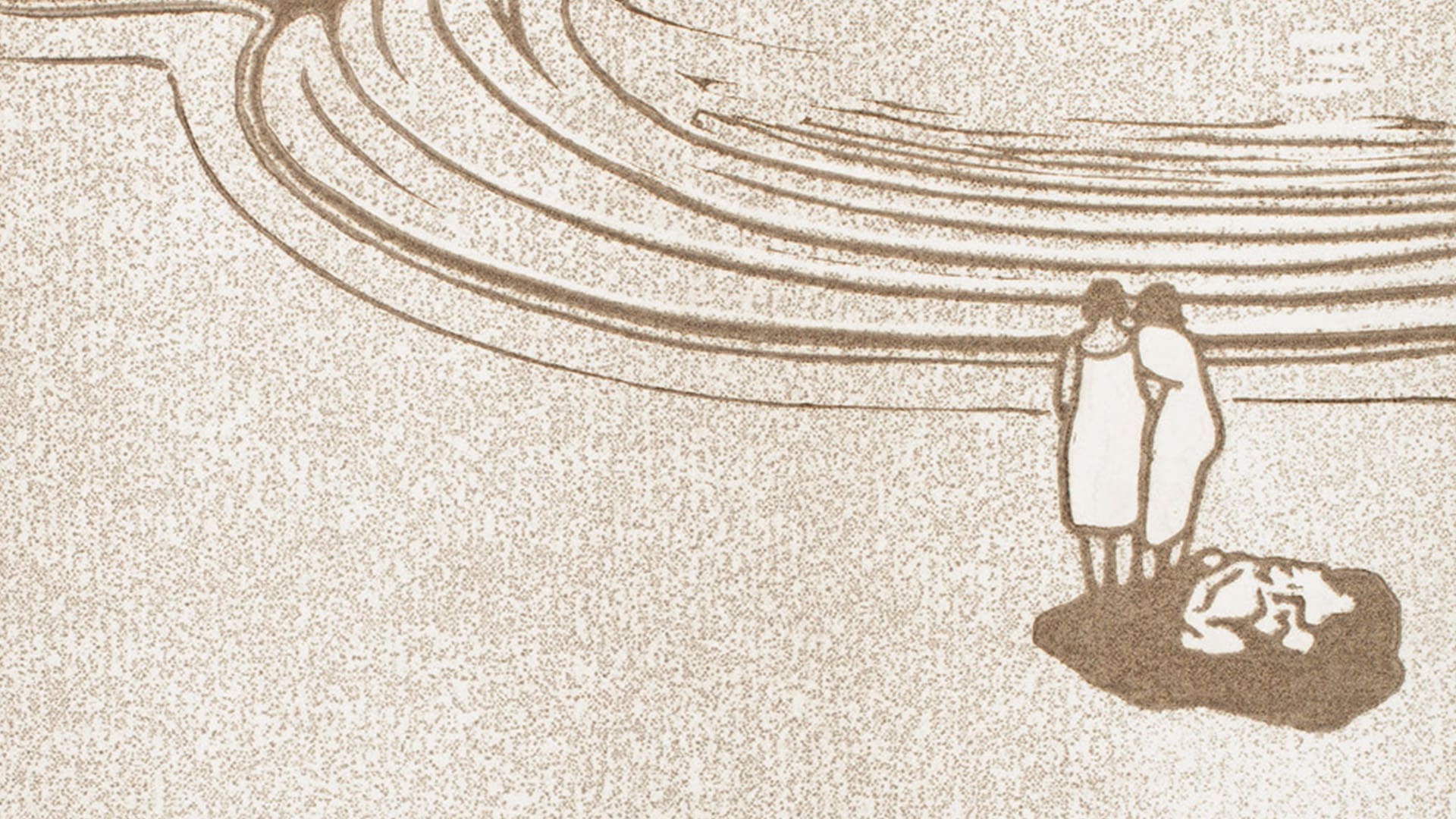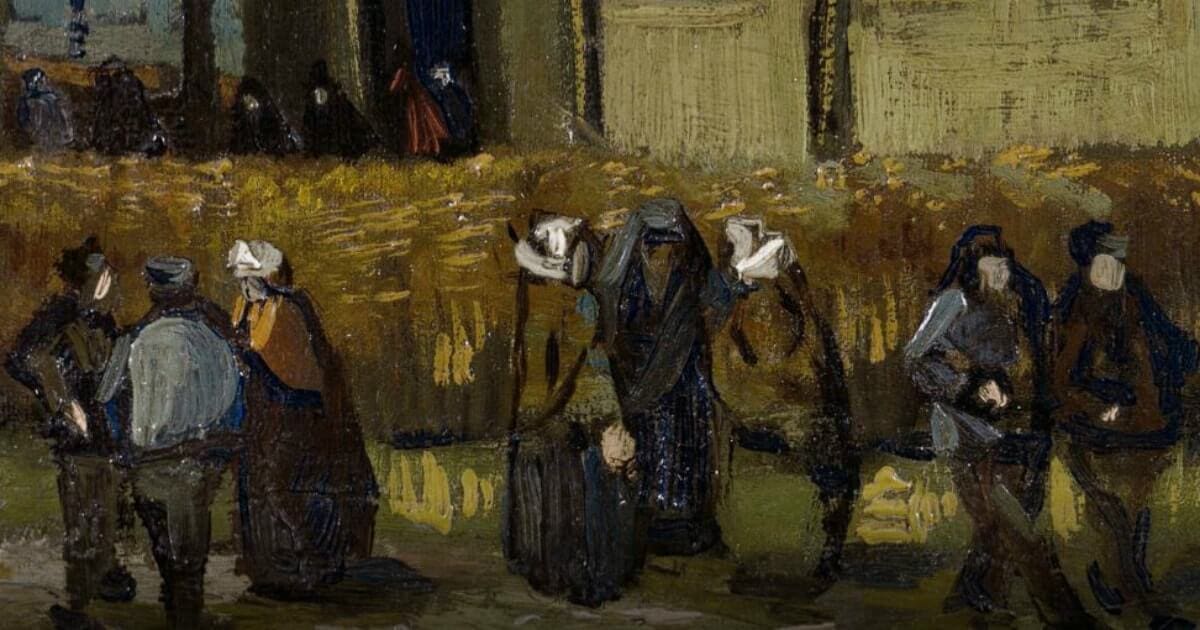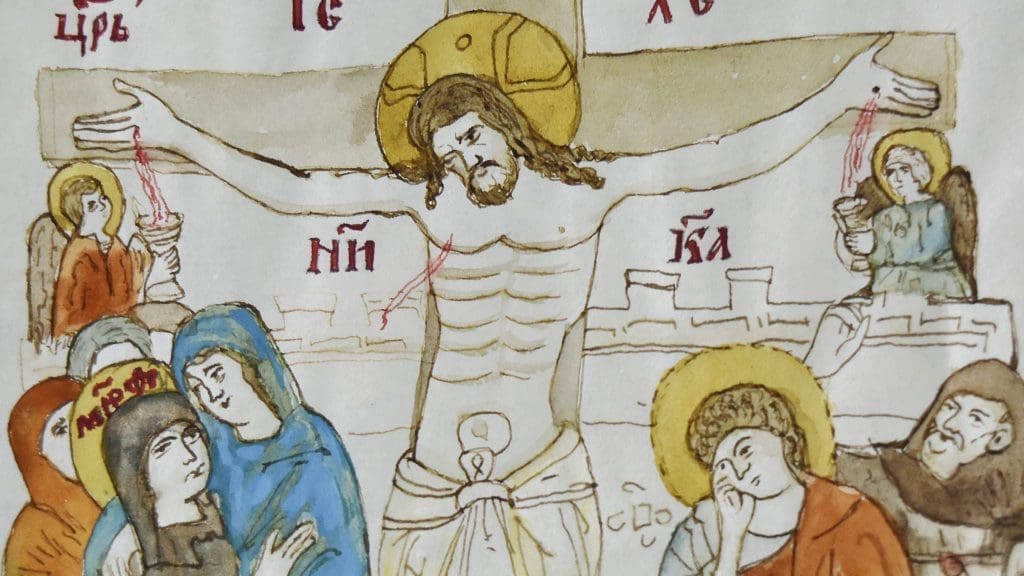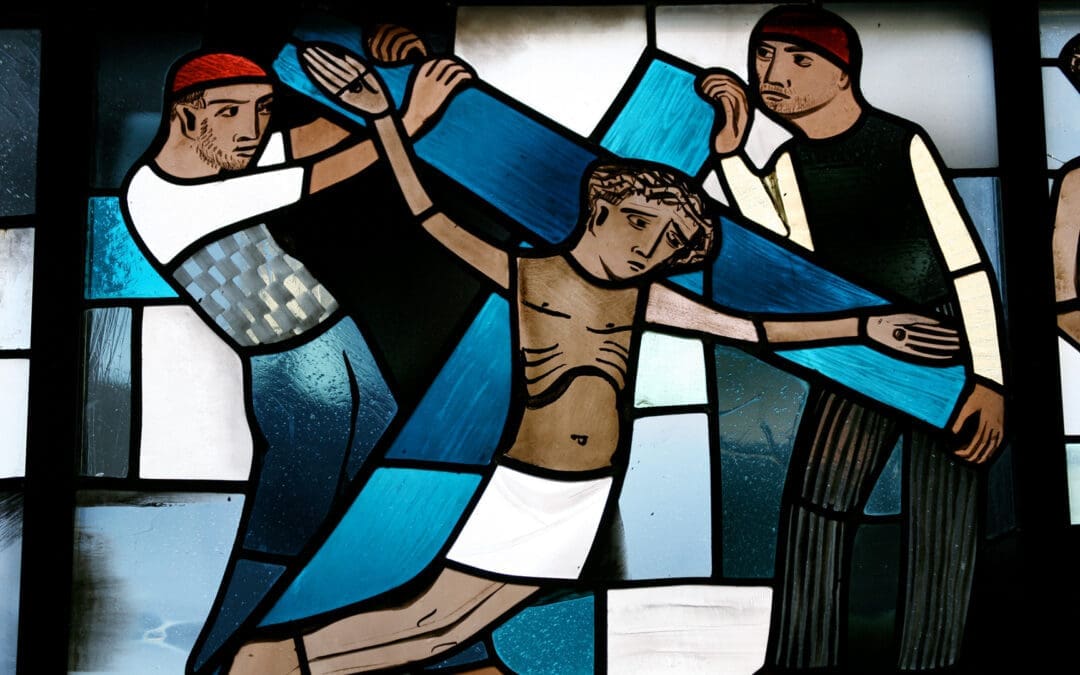I
In 2019, Aziz Ansari returned to stand-up comedy. It had been a hard year. Ansari had been on the top, part of the popular award-winning show Parks and Recreation, which led to his critically acclaimed series Master of None. This was masterpiece comedy, the top of the top. And then he was on the bottom, cancelled. Bad is bad, and though his behaviour wasn’t like fellow comedian Louis C.K.’s, and certainly not criminal like other Hollywood figures, it was not good. After he got cancelled, he didn’t know if he would ever perform again.
But he did. Ansari returned with his Netflix comedy special Aziz Ansari: Right Now. It, too, is a masterpiece. Ansari is still funny, but also different. Gone is the over-the-top hyperactivity. In its place we meet a more reflective person. The whole set shows his personal transformation. It builds until we see it clearly in the final six minutes.
After receiving a roar of laugher, Ansari says, “I want to thank you all for coming tonight.” Pausing for the applause to die down, he continues, “I really mean that. I really am very grateful you came. ’Cause, I’ve done a lot of shows in my career. At the end of the show, I always go ‘G-O-O-D NIGHT and THANK YOU VERY MUCH.’ But the truth is, I never really meant it.” The crowd laughs at this honesty. Ansari continues, “I was just saying that because that’s what you say at the end of a show. But I really didn’t think about what it means that all you guys came out. But now I think about it in a different way. Think about it. All you guys drove down here, waited in line. You did all of this stuff just to hear me talk into a microphone. And it means the world to me. Because I saw the world where I never get to do this again.”
Ansari is now whispering, and the crowd is hanging on his every word. “It almost felt like I died. And in a way, I did. The old Aziz is dead. And I’m glad. Because that guy was always looking forward to whatever was next. Am I going to do another tour? Am I going to do another season? But I don’t think that way anymore. Because I realized it’s ephemeral. All that stuff can just go away.” He snaps his fingers.
Pausing, looking out at the crowd, he says, “All we really have is the moment we’re in and the people we’re with. Now, I talked about my grandma earlier.” He told them she had died in hospice. Taking a breath, he continues, “It’s sad. But what I didn’t tell you is that the whole time I was with her, she was smiling, she was laughing, she was there with me. She was present in a way no other people I’ve been around recently have been. And I’ve tried to take that with me. Now granted, she doesn’t have much of a choice in the matter. But I do. That’s how I choose to live. The moment I’m in with the people I’m with. Right now, this is our moment. So, let’s take it in.”
The theatre goes quiet. Everyone sits in silence. A pregnant silence, filled with attention you can feel through the screen. Not something that happens often at church, let alone a stand-up comedy show. After sitting in the quiet, Ansari breaks it and concludes, “And with that, I’ll say good night and say thank you very, very much.” He smiles and walks offstage.
There it is. That’s it. That’s the whole thing.
That’s what we think your church should do. Or, better, what we think your church should be about.
Okay, we’re finished. If that clicks for you, everything falling into place, you can stop reading now. We hope you enjoyed this article. Like Ansari, we’re very thankful you’ve taken the time to read it. Thank you. And good night!
The End (roll the credits)
Now that the self-defined geniuses are gone, let’s unpack this clip and what it means for the shape of the church.
The whole clip is a parable of what it’s like to live in the secular age. The whole situation arose when Ansari coerced a date into sex. Yes, she consented and so the accusation isn’t that he raped her. Still, she left in tears, regretting the experience immediately. Her claim, one that Ansari accepts now, was that she didn’t want it, but Ansari wore her down. This is an example of objectification: Ansari treated her as an object rather than a person. Her reluctance made the situation clear. He wanted more pleasure and pursued it. But even if she had fully consented, without regrets, the situation might still have been bad. Two people using each other is also not great.
As Ansari indicates, this event fit the larger pattern of his life. He was always pursuing more. More shows, more roles, more money, more fame, and more pleasure. Each of these pursuits had no end and they never brought him satisfaction. He would get something and, even in that instant, his mind was onto the next thing. He got called out for seeking more pleasure because it involved objectifying another person, and we still collectively consider that to be wrong. Capitalist societies such as ours rarely call out greed, because the victims stay faceless. Money is an abstraction, an object; a woman on a date shouldn’t be, though she was in this case. The logic that drove Ansari to pursue more money was at work the night he pursued more pleasure with his reluctant date.
Capitalist societies such as ours rarely call out greed, because the victims stay faceless.
At one level, we’re all like Ansari. Not that we all objectify each other, although that is likely more common than we would like to admit. Our lives are always speeding up. We feel the demands to have more and to go faster. As churches, we want more resources, and as people, we want the good life, which means more activities that we believe will bring meaning. We turn to effective innovation to help speed ourselves up. Except, like Ansari, it is never enough. We seem to run faster to stay in the same place. Like Ansari before his transformation, we’re always looking forward, paying attention to what’s next, but not what’s in front of us. What coming crisis do we need to maneuver around next? And then next? And then next . . . ?
When our crisis is decline—the decline of our churches or falling behind in our life—we feel compelled to do more. This compulsion is real. If we don’t do more, our church closes or our life has no meaning. As long as the crisis is decline, we always and forever need to go faster, to do more and more. Is it any wonder we are anxious, stressed, and depressed? Hanging over our heads is the truth that if we don’t get things done, we’ll fall further behind, sinking deeper and deeper into our hole of decline. Our attention, our deepest concern, must be directed toward a future that our bodies have not yet reached. We spend all of our time throwing ourselves into a hurried future. What an odd way to live. But we barely recognize how weird it is because we’re too busy!
All of which supports Ansari’s point. Before his transformation, before his little death (we’ll return to that soon), his body would be onstage, but his attention would be out ahead of it. His mind would be in some future he needed to race to get to. He couldn’t enjoy the moment; he never truly meant his “thank yous.” It was hard to have any joy at all. And it was almost impossible to move to gratitude. He was too rushed. As with our churches, Ansari couldn’t wait because he needed his rushed actions to win him resources to avoid decline. He needed to keep his mind on the next thing so that his career wouldn’t crash.
When we disconnect from what’s right in front of us, we end up alienated from ourselves, from the life we’re living right now. Disconnecting from the person in front of us harms them because we treat them like an object, and it hurts us too. The secular rush can lead us to stop feeling alive, because we can no longer just be. We can no longer just remember and embrace that we’re alive, receiving life as a gift. We can’t stop and be. We need to move faster and faster to have what’s out ahead of us. We tell ourselves we don’t have a choice. We have to keep our mind on what’s next or we’ll miss it! Miss what? We’re not actually totally sure. We don’t even have time to ask such questions. We just know we’ll fall behind, and falling behind is a threat.
Accelerated Action
Ansari thought that the best actors were the busiest actors. Success and busyness went hand in glove. And we bet many of you think this too. The busiest church is the best in town. Whoever has the most programs wins. Our boards, councils, and sessions figure that the pastor in high demand is the best pastor. Many pastors we know believe this too. The pastor rushes, accelerates, trying to get the congregation beyond crisis, pushing others toward an undefined but surely better future. It’s so easy to assume that this is best. But it isn’t. Acceleration is a disease that promises victory over the crisis of decline but ends in spiritual disaster.
The “good” future is a mirage. Once you get there, there is always another future to chase. You never get to rest. There is never enough, only more. You’ll have to keep running until you’re totally out of energy and burned out. How many churches have burned-out pastors and church staffs? How many have expectations for the pastor and staff that force them to spend all their energy, dooming them to burnout?
Our attention, our deepest concern, must be directed toward a future that our bodies have not yet reached. What an odd way to live.
Burnout here is a kind of deadness to the world. There are scholars who believe that the origins of depression in our society come from the fatigue of needing to always be creating, curating, and remaking who we are (see Alain Ehrenberg’s The Weariness of the Self and Byung-Chul Han’s The Burnout Society). By “depression” we don’t mean strictly clinical depression but rather a deep fatigue, a sense that you just don’t have the energy. What we mean then is that depression is the body’s response to always and forever needing to rush for a future and then the next. Depression sets in when we have no more energy to continue, and yet we still hold the assumption that being busy and having limitless energy is good, spending limitless energy. Depression (as a social reality) arrives when burnout meets the feeling of moral failure. Both individual people and congregations can become depressed when they’re overcome by the need to do more and more but find that they’ve fallen behind, tapped out of energy to overcome the crisis of decline.
Step 1 in Being, Not Having: Humble Death
Ansari’s final six minutes of his show are so powerful because he’s left this rushing for more and for the next thing behind. He’s escaped by being, a much different action from having. Getting cancelled was more than a wake-up call. It killed his career—and for someone who was always trying to have more, it thereby killed him. He didn’t know it, but Ansari began a different relationship with the world that day. He started to be, to wait attentively and sense what was going on around him. He focused on the people right in front of him. Ansari discovered what Christians knew before we got too busy to remember: the only way to escape the treadmill of speeding up is to die.
Whoa! That feels intense. It is, but it’s not unusual. You’re thinking about death all the time, even when you’re trying not to think about it. Thinking about death (or trying to avoid it) makes it easy to obsess about the crisis of decline. We think we must rush to get more, because otherwise we won’t have the resources for the future. Without these resources, we’ll die. Many of us worry deeply that our congregation, or even your denomination, is going to die.
We’re always thinking about dying, but we don’t like to admit it because we hate the thought of dying. Dying is dangerous. It’s bad. It goes against what we think God wants. Doesn’t God want us to have life and life abundant? Still, when busyness takes over our lives and we feel like we can never stop, it’s common to wonder if the only thing that will stop the treadmill is dying. Burned-out leaders, especially pastors, have wished they could die. Not necessarily suicide, although that is a tragic possibility, but something that simply stops the acceleration. Often they sense that if they ever stop, they’ll let down their congregants and they’ll disappoint God. They’ll betray the faith they have given their life to.
That’s heavy, even dangerous, but not uncommon. The Covid pandemic brought us the Great Resignation, which, even if overhyped, at least shows that when faced with a clear existential threat—an uncontrollable disease could kill me—one of our first responses is to quit it all. Thinking about dying (or avoiding thinking about it by getting lost in doomscrolling or drinking or some other way of killing our attention) shows there is something wrong with the way we live our lives. If the only way to stop the acceleration is to die, there is something deeply wrong.
But it’s true. Only dying can stop acceleration. There is no other way. Only in dying can the church find its way beyond the crisis of decline, which is a fake crisis, and into the crisis of God’s action in the world.
Ansari discovered what Christians knew before we got too busy to remember: the only way to escape the treadmill of speeding up is to die.
How? There are different kinds of dying. We like to live inside the illusion that we’ll never die, so we don’t think about the quality of that death. Keep shoving it down, keep denying death, keep moving into the future, keep getting more resources in a hopeless effort to stay alive. But everything made, whether a person, a building, or an institution, dies. This is part of being a creature and not the creator. Creatures, things that are made, die. But there is a good way and a bad way to die. The question is, What kind of death do you want?
We get it, this is heavy. It’s intense, particularly for a stand-up comedy set. When Ansari says, “I saw the world where I never get to do this again,” he saw a world where he lost all connection to a group of people. For Ansari, this lack of connection felt like a death. He says, “It almost felt like I died. And in a way, I did.” But this kind of dying created something new. His death experience led to an honest vulnerability. Or we could say it drew him into humility. Rather than dying in denial, he died in humility. The good death is the one that brings us into humility.
Humility is powerful, but its power is hidden. Humility doesn’t seem formidable; it seems like surrender, like giving up. But therein lies its power. Paul tells the Philippian church that humility is foundational to the spiritual life. If the church is to follow Jesus’s command to wait for God’s action (Acts 1), it starts in humility (Philippians 1). Humility is central to the ethos, or spirit or feel, of a faithful church. Humility is foundational because, Paul tells the Philippians, it is how Jesus lives in the world. Jesus doesn’t count equality with God as something to boast about, never as a licence for gain. Jesus isn’t striving in the world but is simply being in the world. Jesus humbles himself, emptying himself of all temptation to accelerate and dying to overcome all dying. Paul believes humility is so powerful because it shapes our lives into the form of Jesus’s life.
Humility is not something on our to-do list, as if it were a difficult workout at the spiritual gym. Rather, it is a surrender, stopping and confessing that having more cannot save us or our church. In humility, you confess you need something outside your own energy, outside your own creativity, to save you. You die to yourself by confessing you’re in need of a saving you can’t accomplish from your own striving for more.
Step 2 in Being, Not Having: Confession
This kind of dying creates new possibilities because it leads to confession. Ansari confesses that by overlooking both his audience and his art form, he has violated both. Up to this point, it had been all about him. He’s served himself, used people for his own gain. He had made success and its financial rewards more important than the connections, than being with. He had made what’s next more important than the moment of being with his audience. It had all become about what’s next, not what is.
Celebrity apologies are a staple of news and social media. It’s a big deal how public figures respond to failure and blowback. There seem to be two possible responses. One is to admit full-throated that you were totally and completely wrong. You grovel a little (but not too much lest you seem fake), making sure that everyone knows you’ve learned from your mistake. Coming to mind for you might be the seemingly daily example of someone else going down this way by apologizing for an unwise statement.
The second way to respond to blowback is to never, ever say you’re wrong. You stare down the accusation and never blink. If you never admit you’re wrong, never apologize, then the blowback can’t land. This is an unapology apology. At the proverbial water cooler or on the twenty-four-hour news, we talk about why this person can’t just admit they’re wrong. A few politicians of note are very good at this. They seem to turn the blowback around, spinning it back onto those who started it.
Ansari does neither of these. He doesn’t apologize; he confesses. He’s not looking to manage the blowback but to live differently. Unlike an apology, a confession moves to restoration. Where an apology tries to avoid the vulnerability of restoration, a confession, at least in the Christian faith, seeks connection. Confession is a move to repair a broken relationship. In a legal context, justice needs a confession. The confession—letting go, stopping, admitting, and waiting—is the way to be placed back in a connection with others whom you’ve hurt or overlooked.
Jesus calls the church in Acts 1 to wait. But wait for what? To wait for the deep connection with God. The connection is so deep it is spirit to Spirit. At its core, the church is a confessing community because it is a waiting community. A confession is much deeper than an apology.
One thing that makes those six minutes so powerful is that they start in confession. And so too should your church. The first thing to do is to confess together that you are more captivated by the crisis of decline than by the crisis of God’s action. That what you want is not a waiting church but an accelerating church. And that this wanting has far more to do with your own anxiety than with your trust in God. We need to confess that our attention has been on accelerating to ward off decline or to achieve gain rather than on attending to the connections right before us. We need to confess that we’ve led the church by leaving the present for what’s next instead of breathing in the joy of the connections of the community and beauty of the gospel. We’ve wanted to speed up rather than wait inside the gift of these beautiful connections.
Step 3 in Being, Not Having:Gratitude
When we confess and someone else receives it, even when it is a small connection, the response of the confessor is gratitude. It’s saying, “Thank you!” The confession makes a connection. The confessor is seen and heard in their humility. That’s powerful! Humility binds this power, stopping it from being a power play. Confession does not take away the wrongs, but it is necessary for any real justice, reconciliation, and restoration. The only possible response from the confessor is gratitude for being heard and seen, for connecting with another person.
At its core, the church is a confessing community because it is a waiting community.
We know Ansari is not apologizing but confessing because the whole six minutes revolves around gratitude. He wants to say a true “thank you” for the connections, for being in this present moment, at this time, with these people, the very people he’s overlooked. He wants to thank them for the privilege it is to be connected to his art and share it with others. Ansari confesses he hasn’t always served that connection. He’s been selfish. But in receiving their forgiveness, through their participation, his response is to say thank you. Because of this confession there is the possibility of repair, of a new connection that can give life to all of them.
We should not let Ansari off the hook. His dying, humility, and confession have limits. The incident that started all of this involved a woman, and truth be told, we don’t know if Ansari confessed to her. While the audience accepts his confession, giving him some form of absolution by connecting with him, we should not expect that others whom he has sinned against will do the same. The gratitude that Ansari feels in this moment does not mean that he can stop dying, humbling himself, and confessing. Quite the opposite. Now that he has seen his sin of not living in the moment with these people, in alienating himself from his audience and his art, he can see that this also happens in other parts of his life. Dying in humility, confessing, is not a one-time event but continual.
Gratitude in confession does not stem from absolution, which depends on someone else and may never come. Gratitude comes from being seen and heard in the moment of humble death. Gratitude is the gift of being able to confess, not what the confession wins you. At the root of gratitude is connection, in being with these people in this place, in vulnerability, in need. This runs counter to our culture, which says we must power our way through so we can have more. We think that the source of gratitude is those things in our life worthy of the hashtag #blessed. Gratitude actually comes from being in this vulnerable moment with these people with our own sin exposed. How good is it for the people of God to dwell together? Very good, because in moving from having to being, to dying, humbling ourselves, and confessing, we dwell not only with each other. We dwell with God.
Being, Not Having, the Waiting Church
A waiting church is waiting for God, waiting for the Spirit to move and waiting to connect with God. Our crisis becomes the crisis of God’s action. As we wait for God’s action, we open ourselves to God’s arriving by ministering to one another. In humility, we attend to our connections. We do this by concerning ourselves with the present, which is the only place where we live out our connections. We live with others in the present, not the future. Tending to connections and relationships is how we live faithfully in the present, in the right now.
We attend to these connections in humility. In humility, we enter death by hearing confessions, inviting one another to speak of our death experiences. We confess the ways that others, our circumstances, or our own choices have thrust us into loss. We hear each other share these stories and we receive them. These confessions of loss and longing connect us. We’re released from acceleration, which only wants us to spend energy for future resources, when we confess our loss and need in the now. Here we’re together. Here we’re alive. And we respond with gratitude. The confession that is made, heard, and shared connects us deeply. We live in the now by saying “thank you.”
Church boards, councils, and sessions should lead their congregations by confession and gratitude. Your job, as you wait for God’s arrival, is to tend to the connections of the community. Focus on the relationships. Find waiting wrapped in those relationships. You do this not by thinking you can replace God, not by believing it’s up to you to secure the church’s future. No. You do this by teaching others and creating space for confession and gratitude. The waiting church is a church led in humility into confession and thankfulness. The waiting church lives in the now by gratitude. This is how we’re alive and attentive to the arrival of God.
An Invitation to the Waiting Church
Ansari’s confession and his move into gratitude came as a result of his own shortcomings but also from the loss of his grandmother. Watching her as she lived, even as he waited with her for her death, changed him. Her death opened him up to something deeper. In the humble way she faced her death and her joy at just being present with Ansari, his grandmother showed him a way into transformation. Ansari’s grandmother gave him a new way of life, one that places no value on acceleration. This way does not avoid decline but faces death head-on. It doesn’t look to extend the future but to face the end. It’s a way of life that is grounded in the now. In our language, it’s a waiting way of life: waiting deeply with others.
Meaning fills this kind of waiting. It is not a lonely waiting. It would be a sad, even dehumanizing, waiting if Ansari’s grandmother had been left all alone to die, stored away out of sight and out of mind. That waiting is destructive and pained. Alone, we have nothing to wait for, and in that, it is unnatural, even demonic. Her waiting is with and for others. She invites Ansari to wait with her, to be with her in this moment, to honour and lean into their connection. This kind of waiting is the antidote to alienation. This kind of waiting is what Jesus calls the church to in Acts 1.
This waiting is all about this moment with these people. It might look like this way of life has no direction, but it offers a new direction, a new way of life. As Ansari says, this is his new way of being in the world. His life is now all about this moment with these people. He even leads his audience into the practice. Like a pastor, he gently ushers them into silence. (Not something you often see at a comedy show!) He invites his audience to breathe, and just be in this moment. To recognize that they are with these people. He even calls out the names of some in the audience, directing people to see them in that moment. Ansari calls them to attend to the connections as they wait together in both silence and laughter. They’re no longer an audience but a congregation, even a community, in those moments.
This is what a waiting church does. It attends directly and passionately to this moment with these people. It finds life not by giving attention to the future and the resources needed to escape decline but by stewarding those connections. In stewarding the connections, the future will take care of itself. Pastors and lay people lead by inviting the congregation to attend to this moment with these people, trusting that we prepare ourselves for—maybe even experience—the presence of the living God. In this waiting, we don’t do nothing, bored and disconnected. We do the most important thing. We give our people a way of life that is all about this moment with these people.
The invitation to wait is no less difficult to hear than it is to be confronted by the fact that the secular age has captured our imagination and we need to die. But at least it is calling us to something that everyone can see as meaningful. Even if they cannot articulate all the reasons, our society knows that to be with a dying loved one is important. Our greatest regret is often that we weren’t there. This feeling need not turn to regret. It can turn to an action: waiting. Not that either Ansari or his grandmother is a saint. His routine is filled with examples that might make you scratch your head and say, “What do these guys see in Ansari?” Fair enough. Still, it is all the more miraculous because they aren’t saints. Their connection is imperfect. Ansari may not always maintain this stance of being rather than having. But now he knows another way. He knows about dying, confessing, being humble, and having gratitude. He has had a taste of connection and something more. And this experience can and has changed his life, even if this change is not yet complete.








